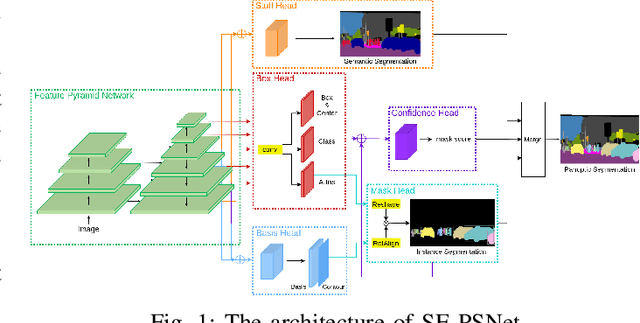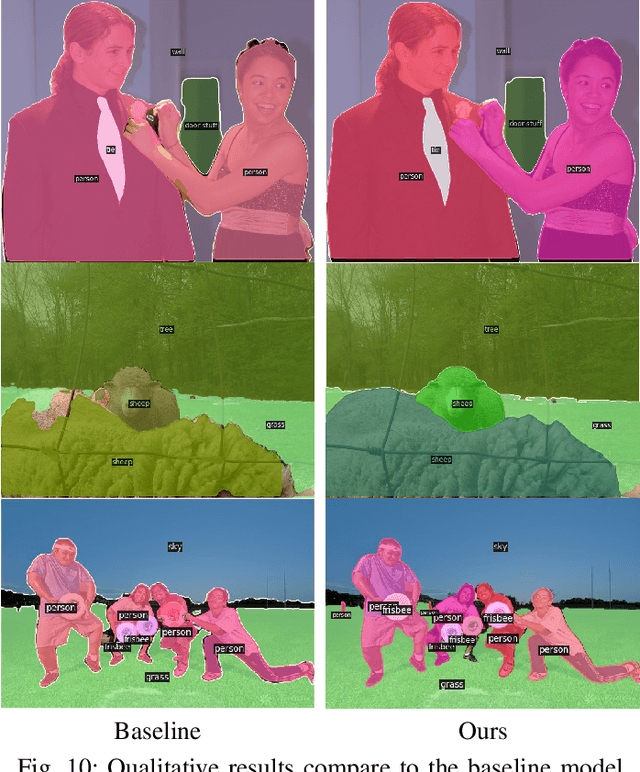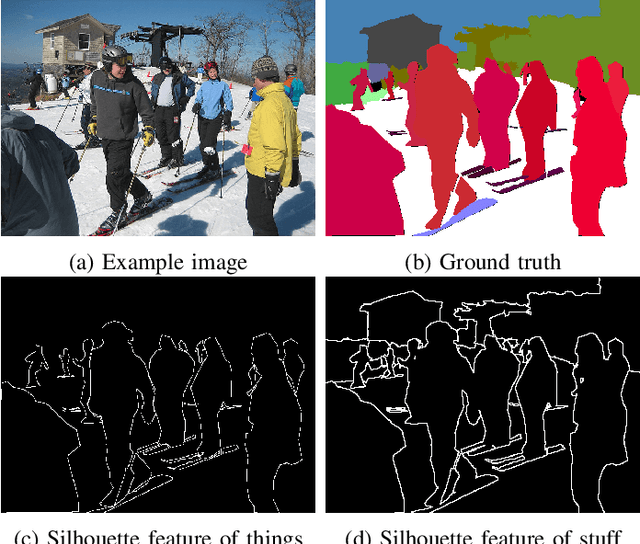Pei-Yung Hsiao
SE-PSNet: Silhouette-based Enhancement Feature for Panoptic Segmentation Network
Jul 11, 2021



Abstract:Recently, there has been a panoptic segmentation task combining semantic and instance segmentation, in which the goal is to classify each pixel with the corresponding instance ID. In this work, we propose a solution to tackle the panoptic segmentation task. The overall structure combines the bottom-up method and the top-down method. Therefore, not only can there be better performance, but also the execution speed can be maintained. The network mainly pays attention to the quality of the mask. In the previous work, we can see that the uneven contour of the object is more likely to appear, resulting in low-quality prediction. Accordingly, we propose enhancement features and corresponding loss functions for the silhouette of objects and backgrounds to improve the mask. Meanwhile, we use the new proposed confidence score to solve the occlusion problem and make the network tend to use higher quality masks as prediction results. To verify our research, we used the COCO dataset and CityScapes dataset to do experiments and obtained competitive results with fast inference time.
EPSNet: Efficient Panoptic Segmentation Network with Cross-layer Attention Fusion
Mar 23, 2020



Abstract:Panoptic segmentation is a scene parsing task which unifies semantic segmentation and instance segmentation into one single task. However, the current state-of-the-art studies did not take too much concern on inference time. In this work, we propose an Efficient Panoptic Segmentation Network (EPSNet) to tackle the panoptic segmentation tasks with fast inference speed. Basically, EPSNet generates masks based on simple linear combination of prototype masks and mask coefficients. The light-weight network branches for instance segmentation and semantic segmentation only need to predict mask coefficients and produce masks with the shared prototypes predicted by prototype network branch. Furthermore, to enhance the quality of shared prototypes, we adopt a module called "cross-layer attention fusion module", which aggregates the multi-scale features with attention mechanism helping them capture the long-range dependencies between each other. To validate the proposed work, we have conducted various experiments on the challenging COCO panoptic dataset, which achieve highly promising performance with significantly faster inference speed (53ms on GPU).
 Add to Chrome
Add to Chrome Add to Firefox
Add to Firefox Add to Edge
Add to Edge